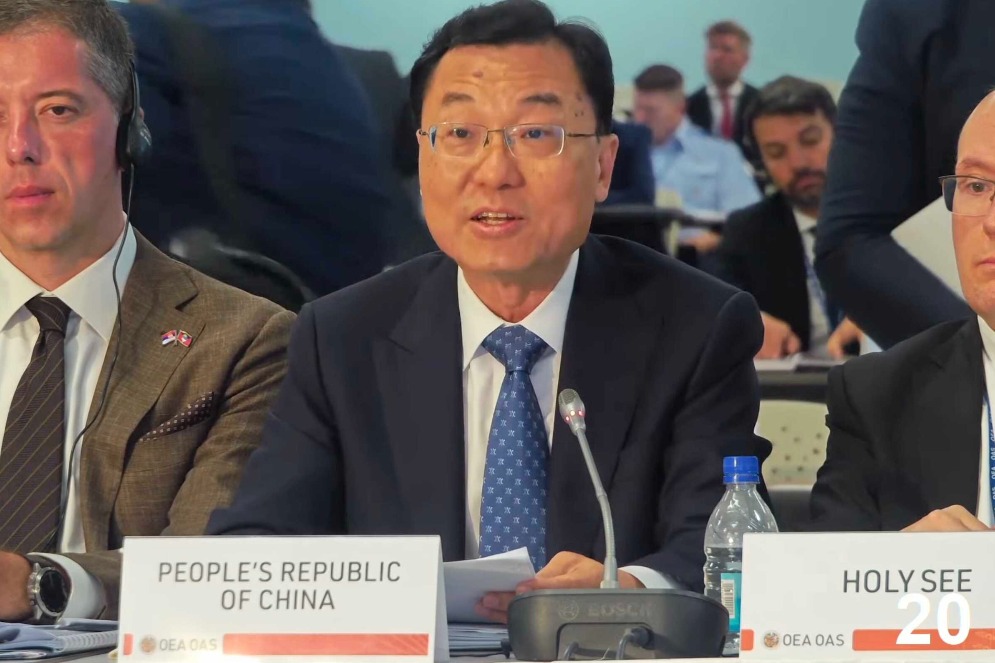US tariffs turn bitter for Belgium chocolate lovers


Brussels is a city with many prides — its architecture, its multilingualism, it being the home to the European Commission. But ask anyone on the street, and you'll discover something that everybody holds dear: chocolate.
No, not just any chocolate, but pure, real Belgian chocolate, which is an edible monument to craftsmanship, abundance and national identity.
Unlike the bite-sized morsels packaged like jewelry elsewhere in the world, Belgian chocolates are rather generous in size. It's not rare for a piece of chocolate here to be as big as a brick, yet they are not bound by simplicity. A single box might carry truffles, caramel-filled domes, hazelnut cream, raspberry coulis, orange zest, or a silky splash of vanilla butter. Factory stores on the outskirts of towns sell them by kilos, scooped into shoebox-sized cartons with a casualness that belies their decadent contents. A kilo might cost 20 euros ($23.4) or something like that, which makes it an affordable luxury for a population that sees this indulgence as everyday nourishment.
The Belgian people have every reason to be proud. In 2023, Belgium exported $3.36 billion worth of chocolate and cocoa-based products. For a country of 11.8 million people, that is a serious economic pillar, one that employs thousands and sweetens the national trade balance.
Of those billions, about $175 million in Belgian chocolate crossed the Atlantic to the United States, destined for US supermarkets, boutique stores and gift boxes. Traditionally, for many Belgian chocolate makers, the US market has been a rather loyal and stable one every year.
But loyalty, like sweetness, can be fragile.
In April, US President Donald Trump signed a tariff order that more than doubled the import duty on Belgian chocolate, which, for the chocolate makers of Belgium who are already coping with rising cocoa prices due to poor harvests in West Africa and a declining euro-dollar exchange rate, is like salt being rubbed on their wounds. Suddenly, the cost of doing business with US buyers ballooned, and with it, fears of losing a foothold in one of the world's largest consumer markets.
I spent a day visiting a few chocolate shops in Brussels. Each one carried the familiar scent of warm cocoa and toasted nuts, but the mood among the shop owners was cooler than usual. One man, in his early 40s and surrounded by rows of glossy truffles, looked at me with a mix of confusion and disappointment. "We have done nothing wrong," he said, in slightly broken English. "Why do they want to tariff us?"
Outside, I met an elderly gentleman sitting on a park bench, holding a bar of dark chocolate and soaking in the highly precious sunshine. When I asked him what he thought of the new tariffs, he shrugged. "I don't know much about international politics," he said. "But I studied economics. If we can't export our chocolate, it's not just bad for the chocolate makers. It's bad for employment. Bad for tax revenue. Bad for services."
Then, with a chuckle that barely masked his seriousness, he added, "People already complain there are no free public toilets in Brussels. If exports fall, the City Hall will have even less money to build them."
The reality behind his words is chilling. In today's interconnected world, the fate of a cocoa farmer in Ghana, a chocolatier in Belgium, and a consumer in Texas are intertwined more tightly than ever. A single signature in the Oval Office can send ripples across entire supply chains. A farmer may labor for months only to find the beans he harvests are suddenly too expensive for the exporters. A small shop owner in Ghent may still produce with the same care and precision, but see his margins vanish. And a US consumer may find his or her favorite Belgian chocolate priced out of reach.
Even the US government that initiated all these scenarios is unlikely to benefit from its own decision. Analysts have estimated that the increased tariffs could slow US GDP growth by 0.2 percentage points, reduce capital market value by 0.1 points, and eliminate over 140,000 jobs. While tax revenues may spike temporarily, the longer-term drag on consumer spending and market confidence could easily outweigh those gains. No one, it seems, walks away from high tariffs richer.
That is the true destructiveness of blanket tariffs. They violate the basic logic of the modern global economy, where nations thrive not by doing everything themselves, but by specializing in what they do best and trading freely with others. In this context, Belgium excels at chocolate — not just as a national treat, but as an exportable, celebrated product. Trade barriers not only punish Belgian artisans, these punish US buyers, Ghanaian growers, and even the governments trying to tax the goods.
Perhaps Trump and his advisers have recognized this. He had announced a 90-day suspension on the European tariffs and dialed back some measures against China. Rumors swirl of further negotiations. But trust, once frayed, takes time to repair. In Brussels, one chocolate maker said he would be cautious about accepting large orders from US retailers. "It's too risky," one told me. "We can't build a business on shifting politics."
There is something unsettling about this fragility. It shows how easily one decision by a single man in a distant office can distort the daily rhythms of honest work. The world economy is built on mutual exchange, on the flow of resources, products and people. When that flow is disrupted not by natural disaster or war, but by political impulse, everyone suffers. That is the danger of economic power wielding carelessly.
Belgian chocolate may seem like a lighthearted subject. But behind each velvety truffle is a complex web of labor, trade and trust. When that trust erodes, even the sweetest industries grow bitter. And in that bitterness, we taste not just the cost of a tariff, but the fragility of the world we've built.
The author is the China Daily EU Bureau Chief Correspondent based in Brussels.

































